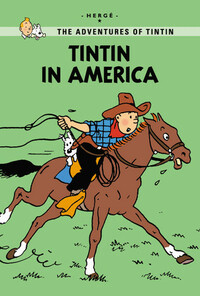You need to sign in or sign up before continuing.
Take a photo of a barcode or cover
adventurous
funny
lighthearted
fast-paced
Uhm wait a minute? This book is veeery problematic.
Serinin 3. bölümde Tenten, Al Capone adının ardından Chicago'ya gidip bu sefer Amerika'nın gerçek yüzünü ortaya çıkarıyor .
İlk iki bölümde çuvallayan anti-Sovyet propaganda ve Afrikalıları ırkçı bir şekilde resmeden Herge bu sefer politik olarak da iyi atışlar yapıyor, ama sadece Batı üzerinden. Özellikle, Tenten'in dinamit patlatıp kazara petrol bulduğu ve ardından petrol bulduğu toprak sahibi yerlilerin başına gelenlerin anlatıldığı çizimler inanılmaz iyi. Hem esprili hem de acıtıcı. Neredeyse 80 yıl geçmiş bu çizimlerin ardından, tek değişen bu gerçekliğin tüm dünyaya yayılmış olması.
Son olarak Herge'nin batıya da Amerikan yerlilerine bakışı basmakalıp ve yine ırkçı bunun dışında macera, kurulan kumpaslar sayfalar ilerledikçe heyecanlı olmaya başlıyor.
İlk iki bölümde çuvallayan anti-Sovyet propaganda ve Afrikalıları ırkçı bir şekilde resmeden Herge bu sefer politik olarak da iyi atışlar yapıyor, ama sadece Batı üzerinden. Özellikle, Tenten'in dinamit patlatıp kazara petrol bulduğu ve ardından petrol bulduğu toprak sahibi yerlilerin başına gelenlerin anlatıldığı çizimler inanılmaz iyi. Hem esprili hem de acıtıcı. Neredeyse 80 yıl geçmiş bu çizimlerin ardından, tek değişen bu gerçekliğin tüm dünyaya yayılmış olması.
Son olarak Herge'nin batıya da Amerikan yerlilerine bakışı basmakalıp ve yine ırkçı bunun dışında macera, kurulan kumpaslar sayfalar ilerledikçe heyecanlı olmaya başlıyor.
The beginning of Tin Tin, where it is just him and Snowy, before the Captain. Enjoyed it :)
adventurous
funny
hopeful
lighthearted
mysterious
fast-paced
Plot or Character Driven:
Plot
Strong character development:
No
Loveable characters:
Yes
Diverse cast of characters:
No
Flaws of characters a main focus:
Complicated
Tintin is the luckiest character in comics. He falls for every trick his enemies play on him only to be saved by a massive stroke of luck. This happens about half a dozen times in the book. A couple of times it feels funny but then it gets tedious.
adventurous
funny
fast-paced
Plot or Character Driven:
Plot
Strong character development:
No
Loveable characters:
Yes
Diverse cast of characters:
No
Flaws of characters a main focus:
No
This is one of the three pre-war Tintin books which are not in general circulation in English, and for fairly good reason; it's not all that good. Tintin goes to America in 1931, briefly captures Al Capone (who was still just about at liberty in real life at that stage), is himself captured by the Blackfoot tribe, and then has a series of unlikely and disjointed adventures ending with him rolling up the entire Chicago Syndicate of Gansters and sent back to Belgium as a hero. The only African-Americans in the book (at least in the current version) are lynched off-screen (apparently even this is omitted in the English translation), and the Blackfoot are kicked off their land because Tintin discovers oil on it; Hergé is at least offering a critique of racism, though not a very elegant one. It's interesting as a fore-runner of the much better stuff to come. It's a very long time since I last read Cigars of the Pharaoh, the next album in sequence, but my memory is that it is a massive upshift in quality and coherence compared with this.



